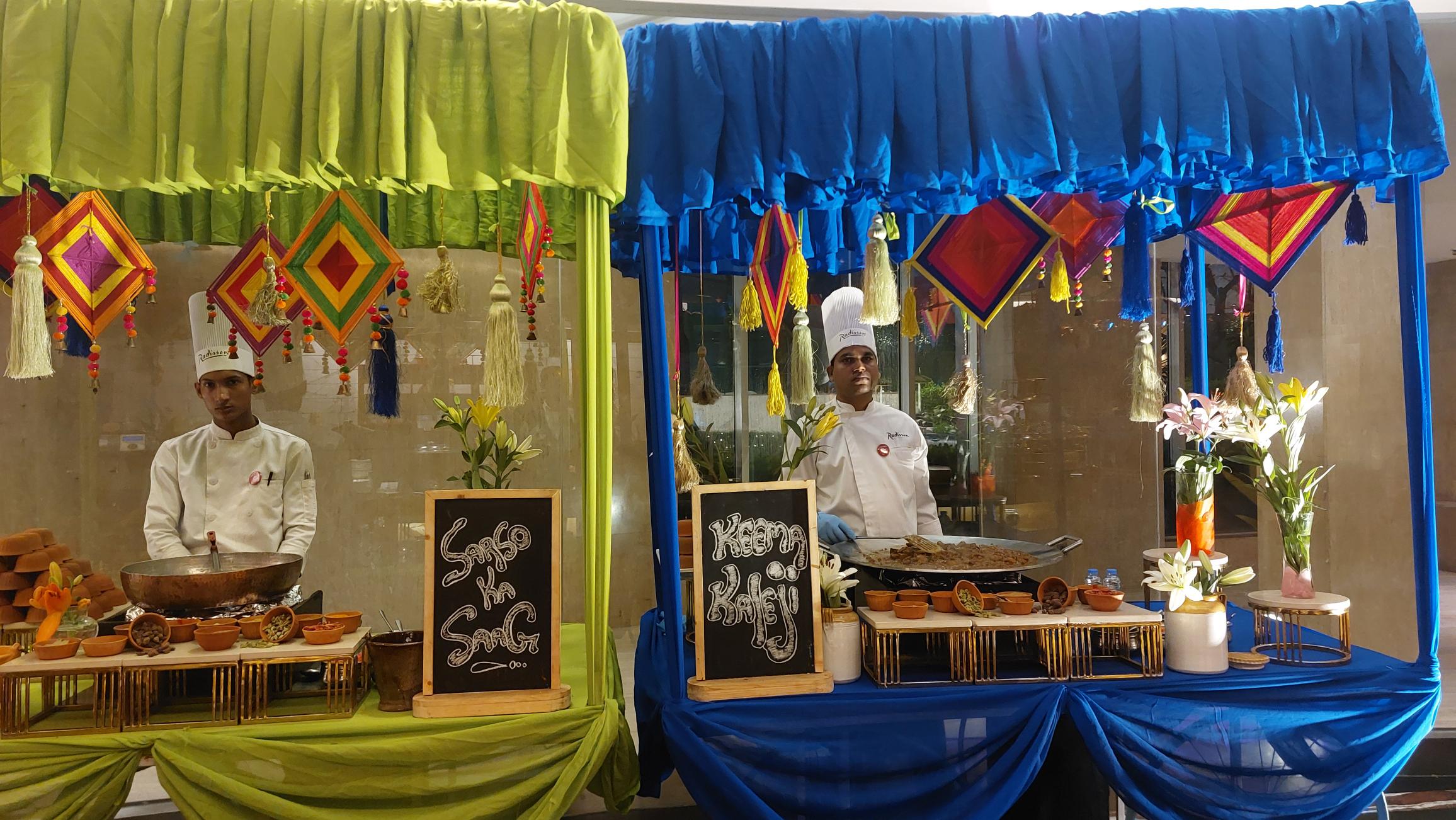Punjabi food is losing its original flavours in Delhi due to rising social media trends and changes in utensils, said celebrated chef Sweety Singh at the ‘Pind da swad’ festival, which concluded recently at Radisson.
Talking about the Punjabi cuisine and how its authenticity is getting diluted, the chef cited multiple reasons behind it, one of which being globalisation of the palate and the tendency of today’s youth to go for quick fixes in the kitchen.

“There are so many agricultural changes today. The tomatoes that used to be grown earlier are not the same today. Tomatoes used to be sour, but that taste is no more there in today’s hybrid harvest. Besides, no one cooks in bronze or clay utensils anymore. It’s only for decoration,” he continued.
In a tirade, Singh rued that the widespread use of food colours and unnecessary amounts of cream and butter has “brought a bad name to Punjabi cuisine”.
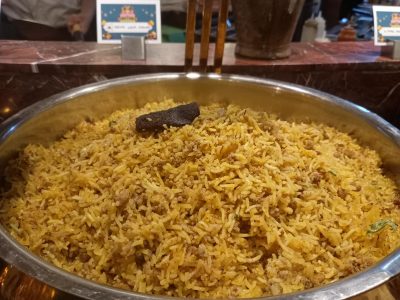
“When you speak of Punjabi food, one immediately tends to think of layers of oil, red colour daal or meat with lots of cream in it. It was never like this. In fact, today, people are so used to eating that kind of perverted form of Punjabi food, that if you serve them authentic ones, they complain,” he said.
“It’s the game of whole masalas and spices. Today’s generation does not have the patience for flavours. Whatever is served to them, they eventually get used to it,” he added.
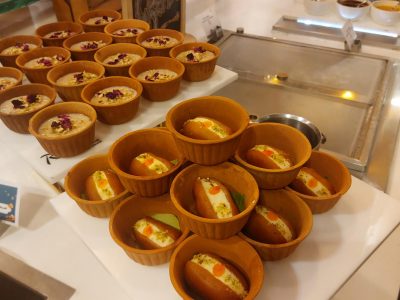
Indulging in the delectable keema kaleji at the “Pind da swad” food festival was a journey to the heart of Punjab, with its rich and authentic flavours.
“I’ve been mastering the art of cooking since I was 19, using masalas that have been passed down through generations in my family,” shared Singh, who owns his own eatery in Delhi’s old quarters.

Singh’s culinary journey has deep roots; his father Gyani Santokh Singh sold food from a humble rehri (handcart) during the chaotic days following the partition of the subcontinent in 1947. He used to sell kadi pakodas, mutton and chicken dishes. Despite losing eyesight due to prolonged diabetes, Singh’s father’s passion for cooking remained unparalleled; “he could distinguish masalas solely by their aroma”.
“My restaurant stands opposite to where my father once parked his rehri, a constant reminder of my humble beginnings,” added the seasoned chef, reflecting on his journey.
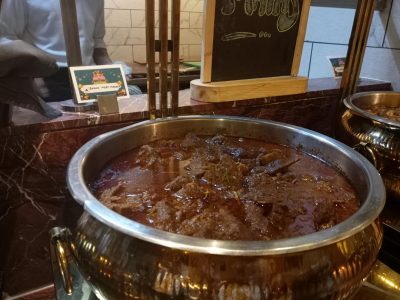
Executive Chef Vikramjit Singh Ahluwalia emphasised the significance of bringing in Sweety Singh for his vast culinary knowledge and renowned masalas. Ahluwalia sees Punjab as a treasure trove of flavors waiting to be explored, and through ‘Pind Da swad’, he aims to present the best of Punjab with sophistication, while keeping the rustic charm intact. Classic delights like tandoori roti, parathas, and lassi capture the essence of Punjabi hospitality, ensuring an unforgettable dining experience.
At the festival, Singh said that the dal makhani “did not have a drop of cream”, contrary to what is popularly sold in the city. The dal makhani was indeed smooth on the throat. “It’s slow-cooked overnight to balance the masalas and the flavour,” Singh explained.
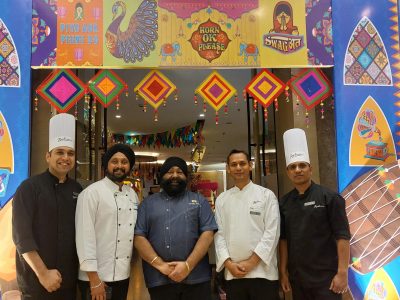
The spicy mutton curry and the chicken tasted differently and quickly disappeared from the plate of the connoisseurs, who also relished keema chawal and butter naan.
In Delhi, what is commonly sold as Rara mutton, has mutton pieces on a bed of keema.
“It’s far from what Rara mutton actually is. The name of the recipe came from the Punjabi word raarna, which means constant stirring. There is no keema in it. Yeh toh halaat hai Punjabi khaane ki! (This is the situation of Punjabi food in Delhi today),” he said, with a tinge of sarcasm.
A poised Ahluwalia, who has an impressive 23-year career in the culinary realm, steered the festival and shaped it to what it presented during the course of the event.
Imagine relishing Sarson Da Saag and Makki Di Roti, tantalising Lal Mirch Da Tandoori Kukkad straight from the tandoor, all without the need to journey to Punjab. Pind Da swad made these genuine Punjabi culinary delights accessible to diners, set in the luxurious ambiance of Cafe NH8 at Radisson Gurugram Udyog Vihar.
The culinary extravaganza showcased a dynamic menu of Punjabi specialties. From traditional beverages like Kesari Lassi and Masala Chaas to iconic dishes such as Kukad Makhan Wala and Amritsari Fish, each offering transported patrons to Punjab.
Accompanied by an array of bread options including Tandoori Roti, Naan, and Kulcha, every bite was a flavourful exploration of Punjab’s rich culinary heritage.

